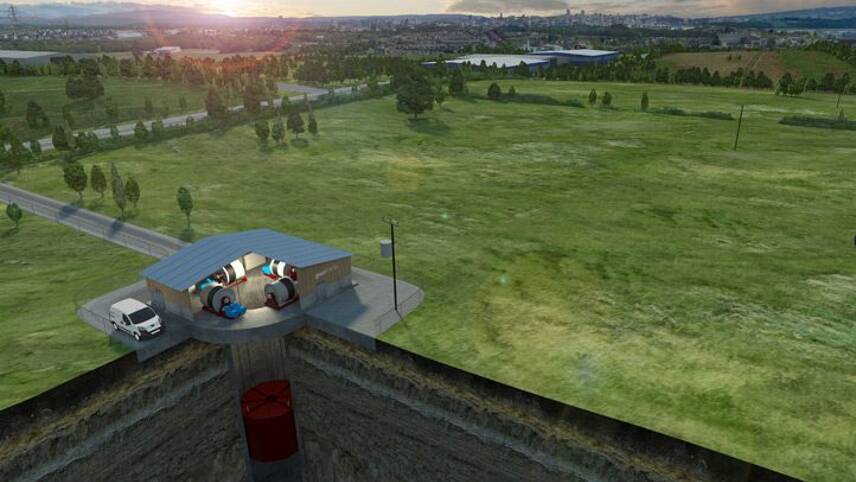Register for free and continue reading
Join our growing army of changemakers and get unlimited access to our premium content

Gravitricity’s concept has secured £650
Edinburgh-based Gravitricity’s energy battery system works by utilising and raising a range of weights totalling up to 12,000 tonnes that are suspended in deep mine shafts. Electrical power can be absorbed or generated by raising or lowering the weight.
The company had signed a land rental agreement with Forth Ports to build their first £1m demonstrator project on land within the Port of Leith in Edinburgh. Work on the industrial site will commence in October with Gravitricity aiming to have the project up and running by December.
Gravitricity Lead Engineer Miles Franklin “This grid-connected demonstrator will use two 25-tonnes weights suspended by steel cables. In our first test, we’ll drop the weights together to generate full power and verify our speed of response. We calculate we can go from zero to full power in less than a second – which can be extremely valuable in the frequency response and back-up power markets.
“We will then run tests with the two single weights, dropping one after the other to verify smooth energy output over a longer period. Together, this two-month test programme will confirm our modelling and give us valuable data for our first full-scale 4MW project which will commence in 2021.”
The project is being supported by Leicestershire firm Kelvin Power, which is delivering the lattice tower, while Dutch firm Huisman is developing the winch and control system.
Storage shift
Gravitricity’s concept has secured £650,000 in government funding from Innovate UK. Gravitricity wants to build models ranging between 1 to 20MW, with each system running for 50 years.
Energy storage installations are poised for a 122-fold increase between now and 2040, as the uptake of renewable energy and electric vehicles (EVs) and falling costs of technology provides an ideal platform to drive demand for storage solutions.
Facilitation of this demand will require $662bn of investment, according to BNEF, but will be made possible by further declines in the cost of lithium-ion batteries, which have already fallen by 85% between 2010 and 2018.
Gravitricity claims that its energy storage solution will have a levelised cost “well below” that of lithium batteries, with the output duration able to range from 15 minutes to eight hours to serve a variety of needs.
Matt Mace


Please login or Register to leave a comment.